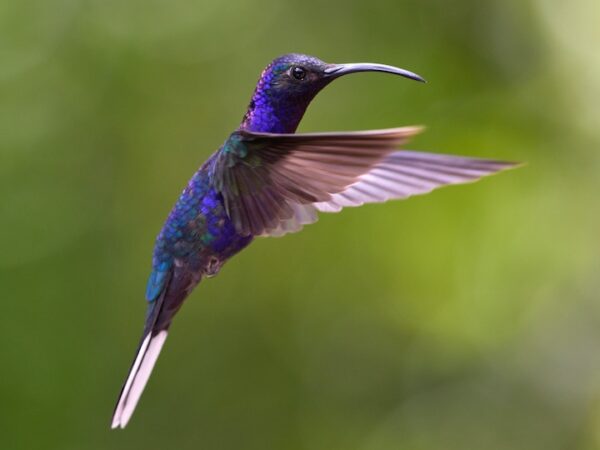The jasmine flower has long been admired for its delicate beauty and enchanting fragrance. But did you know that this stunning flower holds hidden meanings and symbolism? From ancient cultures to modern day, the jasmine flower has been revered for its spiritual significance and symbolism in different aspects of life.
In this blog post, we will delve into the captivating world of the jasmine flower and unlock its hidden meanings. Get ready to be intrigued and amazed as we uncover the jasmine flower meaning and its spiritual significance. So sit back, relax, and let’s embark on this journey of discovery together.
Key Takeaways
- The jasmine flower holds deep spiritual meaning and symbolism.
- It represents purity, love, beauty, and new beginnings.
- The different varieties and colors of jasmine flowers each carry their own unique meanings.
- Jasmine flowers have healing powers, promoting relaxation and reducing stress.
- The connection between jasmine flowers and mindfulness practices enhances our sense of presence and awareness.
- Jasmine flower symbolism varies in different cultures, representing feminine energy, grace, and deep emotions.
- The jasmine flower is a powerful and captivating flower that reminds us of the profound connections between nature, spirituality, and human emotions.
The Exquisite Beauty of Jasmine Flower: An Overview
The jasmine flower is a true marvel of nature, captivating our senses with its exquisite beauty and intoxicating fragrance. Its delicate petals, usually white or pale yellow, dance in the wind, creating a vision of grace and elegance. But the allure of this flower goes beyond its physical appearance, as it holds deep spiritual meaning and symbolism.
For centuries, the jasmine flower has been cherished for its spiritual significance. It is believed to symbolize purity and innocence, representing the purity of the soul and the divine essence within us. This flower has long been associated with love and romance, evoking feelings of passion, sensuality, and desire. It is often used in love spells and rituals to attract love and strengthen romantic relationships.
The jasmine flower also carries a profound message of hope and renewal. Its delicate petals unfold in the early morning, filling the air with a sweet fragrance, signaling the beginning of a new day. This process symbolizes new beginnings, fresh starts, and the potential for growth and transformation. It reminds us that no matter how dark the night may be, the dawn always brings a ray of hope.
In addition to its spiritual meaning, the jasmine flower holds great symbolism in various cultures around the world. In Hinduism, it is associated with the Hindu goddess Shakti, representing feminine energy, power, and divine grace. In China, the jasmine flower symbolizes beauty, elegance, and grace, often seen as a representation of the perfect woman. In Persia, it is regarded as a symbol of love and affection, often used in traditional Persian poetry to convey deep emotions and longing.
Beyond its symbolic meanings, the jasmine flower also possesses remarkable healing powers. Its fragrance has a calming effect on the mind and body, promoting relaxation and reducing stress and anxiety. In aromatherapy, jasmine essential oil is used to uplift the spirit, enhance mood, and promote a sense of well-being. It is also believed to have aphrodisiac properties, igniting passion and sensuality.

Jasmine Flower Meaning : Unveiling its hidden spiritual meanings
Now that we have explored the beauty and symbolism of the jasmine flower, it is time to dive deeper into its profound meanings. From purity and love to hope and renewal, the jasmine flower holds a world of spiritual significance.
Let’s unveil the hidden meanings associated with jasmine flowers:
1. Spiritual purity: The jasmine flower is often seen as a symbol of purity, representing the pure and innocent nature of the soul. It reminds us to embrace our true selves and strive for inner purity and spiritual enlightenment.
2. Love and romance: The jasmine flower is strongly associated with love and romance. Its delicate petals and intoxicating fragrance evoke feelings of passion, sensuality, and desire. It is often used in love spells and rituals to attract love and strengthen romantic relationships.
3. Hope and renewal: Just like the jasmine flower unfolds its delicate petals in the early morning, it symbolizes new beginnings, fresh starts, and the potential for growth and transformation. It serves as a reminder that no matter how dark the night may be, the dawn always brings a ray of hope.
4. Feminine energy and grace: In Hinduism, the jasmine flower is associated with the goddess Shakti, representing feminine energy, power, and divine grace. Its delicate petals and sweet fragrance embody the qualities of strength and grace.
5. Deep emotions and longing: In Persian culture, the jasmine flower is regarded as a symbol of love and affection. It is often used in traditional Persian poetry to convey deep emotions and longing. The sweet fragrance and delicate beauty of the jasmine flower serve as a testament to the intensity and depth of human emotions.
The jasmine flower holds a world of profound meanings, from spiritual purity and love to hope and deep emotions. Its symbolism transcends cultures and speaks to the universal experiences of the human soul. Next time you encounter a jasmine flower, take a moment to appreciate its beauty and contemplate the hidden meanings it holds.
You can also check out: Green Butterfly Spiritual Meaning
The different varieties of jasmine flower and their unique meanings
The jasmine flower is a diverse and fascinating plant that comes in various varieties, each with its own unique meanings and symbolism. Let’s explore the different types of jasmine flowers and the messages they convey:
1. Arabian Jasmine (Jasminum sambac): This variety of jasmine is native to Asia and is known for its intoxicating fragrance. It is often associated with purity, love, and romance. Arabian jasmine is used in wedding ceremonies and is believed to bring good luck and prosperity to the couple. In some cultures, it is also seen as a symbol of motherhood and fertility.
2. Star Jasmine (Trachelospermum jasminoides): This jasmine variety is renowned for its beautiful white star-shaped flowers and sweet fragrance. It symbolizes beauty, grace, and elegance. Star jasmine is often used in landscaping and can be found climbing on trellises and fences, creating a picturesque display of natural beauty.
3. Confederate Jasmine (Trachelospermum jasminoides): Also known as “Star Jasmine” or “Starry Jasmine,” this variety is native to China and Japan. It represents unity, loyalty, and friendship. Confederate jasmine is often used as a symbol of camaraderie and can be given as a gift to express gratitude and appreciation for a close friend or loved one.
4. Jasmine Grandiflorum (Jasminum grandiflorum): This variety is known for its large, white flowers and rich fragrance. It is often associated with sensuality, passion, and desire. Jasmine grandiflorum is used in aromatherapy to enhance romance and create an intimate atmosphere. It is also believed to have aphrodisiac properties, making it a popular choice for enhancing intimacy and passion.
5. Jasminum officinale (Common Jasmine): This variety of jasmine is one of the most well-known and widely used. It represents purity, innocence, and new beginnings. Common jasmine is often used in religious ceremonies and rituals as a symbol of spiritual enlightenment and purification.
Each variety of jasmine flower carries its own unique meanings and symbolism, adding to the intrigue and mystique of this captivating flower. Whether it’s the delicate petals and sweet fragrance of Arabian jasmine, the star-shaped beauty of Star jasmine, or the sensuality of Jasmine Grandiflorum, each type of jasmine flower offers a different message to those who appreciate its beauty. So, the next time you encounter a jasmine flower, take a moment to contemplate its variety and the hidden meanings it may hold.
The significance of the color of jasmine flowers
The color of a flower often carries significant meaning and symbolism, and the jasmine flower is no exception. While jasmine flowers are typically white or pale yellow, the different colors that can occasionally be found in these delicate blooms add an extra layer of significance to their symbolism.
Let’s explore the significance of the color of jasmine flowers and how it enhances their spiritual meaning.
1. White: White jasmine flowers are the most common and represent purity, innocence, and spiritual enlightenment. They symbolize the pure nature of the soul and the divine essence within us. White jasmine flowers also embody peace and tranquility, bringing a sense of calm and serenity.
2. Pale Yellow: Pale yellow jasmine flowers symbolize happiness, joy, and optimism. They represent a bright and cheerful outlook on life and remind us to embrace positivity and gratitude. Pale yellow jasmine flowers also signify hope and new beginnings, as they evoke the image of a radiant sunrise and the promise of a new day.
3. Pink: Pink jasmine flowers carry a gentle and romantic symbolism. They represent love, affection, and tenderness. Pink jasmine flowers are often associated with blossoming love and sweet gestures of affection. They embody the delicate nature of love and evoke feelings of warmth and compassion.
4. Red: While red jasmine flowers are quite rare, they hold a powerful symbolism of passion, desire, and intense love. The vibrant red color represents the fire and energy of love, igniting passion and sensuality. Red jasmine flowers symbolize deep emotions and longing, embodying the intensity and fervor of romantic love.
The significance of the color of jasmine flowers adds depth and nuance to their spiritual meaning. Whether it’s the purity of white jasmine flowers, the happiness of pale yellow blooms, the romance of pink petals, or the passion of red blossoms, the color of jasmine flowers speaks to the different aspects of love, purity, and spirituality. So the next time you encounter a jasmine flower, take a moment to appreciate its color and contemplate the hidden meanings it holds.
The Healing Powers of Jasmine Flowers: Their Uses and Benefits in Daily Life
The jasmine flower is not just a beautiful sight to behold or a symbol of spiritual significance, it also possesses incredible healing powers. The aroma of the jasmine flower has been used for centuries to promote relaxation, reduce stress and anxiety, and uplift the spirit. Let’s explore the uses and benefits of jasmine flowers in daily life.
One of the most common uses of jasmine flowers is in aromatherapy. The fragrance of jasmine essential oil has a calming effect on the mind and body, helping to relieve stress and anxiety. It has been used to promote a sense of peace and relaxation, allowing individuals to unwind and find solace in the midst of a hectic day. The soothing scent of jasmine can be diffused in a room, added to bathwater, or used in massage oils to enhance its therapeutic effects.
Jasmine flowers are also known for their mood-enhancing properties. The scent of jasmine has been shown to stimulate the release of certain chemicals in the brain that promote positive emotions, such as happiness and joy. Inhaling the fragrance of jasmine flowers can uplift the spirit and create a sense of well-being. It is a natural remedy for depression, helping individuals to find solace and peace in moments of darkness.
Furthermore, jasmine flowers have been used for centuries as an aphrodisiac. The scent of jasmine has long been associated with passion and sensuality, igniting feelings of desire and attraction. In ancient times, jasmine flowers were used to enhance romantic encounters and increase sexual desire. The aroma of jasmine can be used to create a romantic ambiance, adding a touch of elegance and seduction to any setting.
In addition to its emotional and sensual benefits, jasmine flowers also have remarkable effects on the physical body. Jasmine essential oil is known for its antiseptic and anti-inflammatory properties. It can be used topically to heal wounds, reduce inflammation, and soothe irritated skin. Jasmine oil is also a natural moisturizer, leaving the skin feeling soft and supple. It can be added to skincare products or used directly on the skin for its nourishing effects.
The healing powers of jasmine flowers extend beyond the realm of aromatherapy and skincare. Jasmine tea, made from the flowers or leaves of the jasmine plant, has been consumed for centuries for its health benefits. Jasmine tea is rich in antioxidants, which can help protect the body against free radicals and reduce the risk of chronic diseases. It also contains compounds that may help lower cholesterol levels, improve digestion, and boost the immune system.
The connection between jasmine flowers and mindfulness practices
Jasmine flowers have a deep connection to mindfulness practices, as they possess a spiritual meaning that can enhance our sense of presence and awareness. The delicate beauty and enchanting fragrance of the jasmine flower serve as reminders to be fully present in the moment and appreciate the beauty that surrounds us.
Mindfulness is the practice of intentionally bringing our attention to the present moment, without judgment or attachment. It involves being fully aware of our thoughts, emotions, and physical sensations, as well as our surroundings. The jasmine flower can be a powerful tool in this practice, as its beauty and fragrance can help us anchor our attention and cultivate a sense of mindfulness.
When we encounter a jasmine flower, we can take a moment to observe its delicate petals, feel the texture of its leaves, and inhale its sweet fragrance. By fully immersing ourselves in the sensory experience of the jasmine flower, we can anchor our attention in the present moment and cultivate a sense of mindfulness.
The spiritual meaning of the jasmine flower adds another layer of depth to our mindfulness practice. Its symbolism of purity, love, and new beginnings can inspire us to let go of the past and embrace the present moment with open hearts and minds. The jasmine flower reminds us to approach our mindfulness practice with a sense of curiosity, openness, and non-judgment, allowing us to fully experience and appreciate each moment as it unfolds.
Incorporating jasmine flowers into our mindfulness practice can be as simple as having a bouquet of fresh jasmine flowers in our meditation space, diffusing jasmine essential oil during our practice, or simply taking a moment to appreciate the beauty and fragrance of a jasmine flower when we encounter one in nature. The presence of the jasmine flower can serve as a gentle reminder to bring our attention back to the present moment and cultivate a sense of mindfulness in our daily lives.
So, the next time you come across a jasmine flower, take a moment to pause, breathe, and fully immerse yourself in its beauty and fragrance. Allow it to be a gentle reminder to bring your attention to the present moment and cultivate a sense of mindfulness in your life. The connection between jasmine flowers and mindfulness practices is a powerful one, allowing us to find peace, stillness, and a deeper connection to ourselves and the world around us.
Understanding Jasmine Flower Symbolism in Various Cultures
The jasmine flower is not only admired for its beauty and fragrance, but it also holds deep symbolism and meaning in various cultures around the world. In this section, we will explore the rich symbolism of the jasmine flower and its significance in different cultures.
In Hinduism, the jasmine flower is associated with the goddess Shakti, representing feminine energy, power, and divine grace. The delicate petals and sweet fragrance of the jasmine flower embody the qualities of strength and grace, reminding us of the inherent power and beauty within all women.
In China, the jasmine flower symbolizes beauty, elegance, and grace. It is often seen as a representation of the perfect woman, embodying qualities such as kindness, gentleness, and charm. The jasmine flower is also considered a symbol of everlasting love and devotion.
In Persia, the jasmine flower is regarded as a symbol of love and affection. It is often used in traditional Persian poetry to convey deep emotions and longing. The sweet fragrance and delicate beauty of the jasmine flower serve as a testament to the intensity and depth of human emotions.
The jasmine flower also holds great significance in the language of flowers, a system of communication through the use of flowers. In this system, the jasmine flower represents sensuality and amiability, making it a popular choice for expressing romantic feelings and affection.
Furthermore, the jasmine flower has been used in various cultural ceremonies and rituals. In some cultures, it is believed that wearing jasmine flowers or using them as decorations can bring good fortune and ward off evil spirits. The jasmine flower is also often used in weddings, symbolizing purity, love, and new beginnings.
The spiritual meaning of the jasmine flower transcends cultures and holds universal significance. It represents purity and innocence, reminding us to embrace our true selves and strive for inner purity and spiritual enlightenment. The delicate petals and intoxicating fragrance of the jasmine flower evoke feelings of passion, sensuality, and desire, making it a powerful symbol of love and romance.
The jasmine flower is a truly enchanting and symbolic flower that holds deep meaning in various cultures. Whether it represents purity, love, beauty, or renewal, the jasmine flower captivates our senses and reminds us of the profound connections between nature, spirituality, and human emotions. Next time you encounter a jasmine flower, take a moment to appreciate its beauty and contemplate the hidden meanings it holds.

Conclusion
In our journey of exploring the hidden meanings of the jasmine flower, we have uncovered a world of spiritual significance and symbolism. From its representation of purity and love to its message of hope and renewal, the jasmine flower holds profound meaning in various aspects of life. Its delicate beauty and intoxicating fragrance have captivated cultures across the globe, each interpreting its symbolism in their own unique way.
The jasmine flower’s spiritual meaning reminds us to embrace our true selves, strive for inner purity, and seek spiritual enlightenment. It evokes feelings of passion, sensuality, and desire, making it a powerful symbol of love and romance. The jasmine flower also carries a message of hope, signaling new beginnings and the potential for growth and transformation.
Through its different varieties and colors, the jasmine flower offers a diverse range of meanings and symbolism. From the Arabian jasmine’s association with purity and love to the Star jasmine’s representation of beauty and elegance, each type of jasmine flower brings its own unique message.
In addition to its spiritual significance, the jasmine flower possesses remarkable healing powers. Its fragrance has a calming effect on the mind and body, promoting relaxation and reducing stress and anxiety. It can uplift the spirit and enhance mood, bringing a sense of well-being and joy.
The connection between jasmine flowers and mindfulness practices is also significant. The beauty and fragrance of the jasmine flower can anchor our attention in the present moment, cultivating a sense of mindfulness and deepening our awareness of the world around us.
Overall, the jasmine flower is a captivating and symbolic flower that reminds us of the profound connections between nature, spirituality, and human emotions. Its hidden meanings and spiritual significance continue to inspire and enchant us, offering a glimpse into the beauty and complexity of the natural world. So the next time you encounter a jasmine flower, take a moment to appreciate its beauty and contemplate the profound messages it carries.
Further Reference: Jasmine Flower Meaning
Frequently Asked Questions
- Q: What is the spiritual meaning of the jasmine flower?
A: The jasmine flower holds deep spiritual meaning, representing purity, love, beauty, and new beginnings. It is believed to symbolize the purity of the soul and the divine essence within us. The delicate petals and enchanting fragrance of the jasmine flower evoke feelings of passion, sensuality, and desire, making it a powerful symbol of love and romance. The jasmine flower also carries a message of hope and renewal, symbolizing fresh starts and the potential for growth and transformation.
- Q: What are the different varieties of jasmine flower and their unique meanings?
A: There are various types of jasmine flowers, each with its own unique meanings. The Arabian jasmine is associated with purity, love, and motherhood. Star jasmine represents beauty, elegance, and grace. Confederate jasmine symbolizes unity, loyalty, and friendship. Jasmine grandiflorum embodies sensuality, passion, and desire. Common jasmine represents purity, innocence, and new beginnings.
- Q: What is the significance of the color of jasmine flowers?
A: The color of jasmine flowers carries significant meaning. White jasmine flowers symbolize purity, innocence, and spiritual enlightenment. Pale yellow jasmine flowers represent happiness, joy, and optimism. Pink jasmine flowers signify love, affection, and tenderness. Red jasmine flowers symbolize passion, desire, and intense love.
- Q: How can jasmine flowers be used for healing?
A: Jasmine flowers have remarkable healing powers. The fragrance of jasmine essential oil promotes relaxation, reduces stress and anxiety, and uplifts the spirit. It can be used in aromatherapy to create a sense of peace and well-being. Jasmine flowers also have mood-enhancing properties, stimulating positive emotions. They can be used as an aphrodisiac to enhance romantic encounters. Jasmine tea, made from jasmine flowers or leaves, is rich in antioxidants and can benefit the immune system, digestion, and cholesterol levels.
- Q: What is the connection between jasmine flowers and mindfulness practices?
A: Jasmine flowers have a deep connection to mindfulness practices. Their beauty and fragrance can help anchor our attention in the present moment, cultivating a sense of mindfulness and awareness. The spiritual meaning of the jasmine flower enhances our practice, reminding us to embrace our true selves and approach mindfulness with openness and non-judgment. Incorporating jasmine flowers into our practice can be as simple as having them in our meditation space or diffusing jasmine essential oil.





